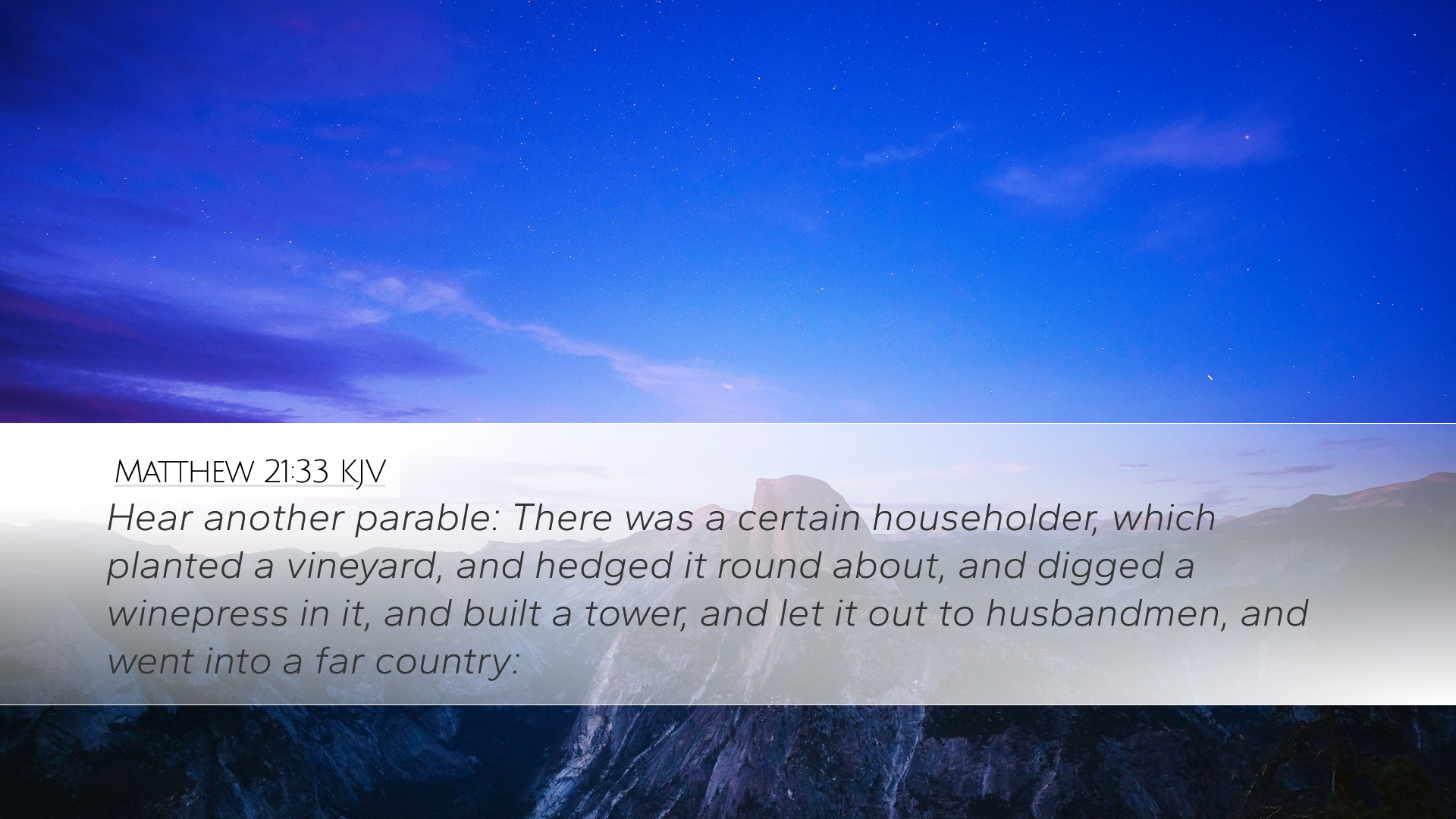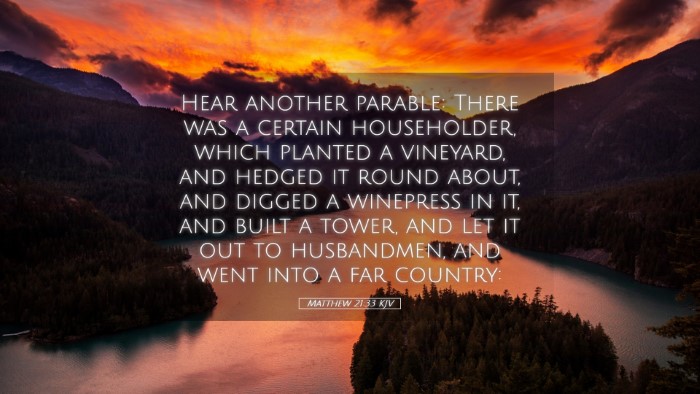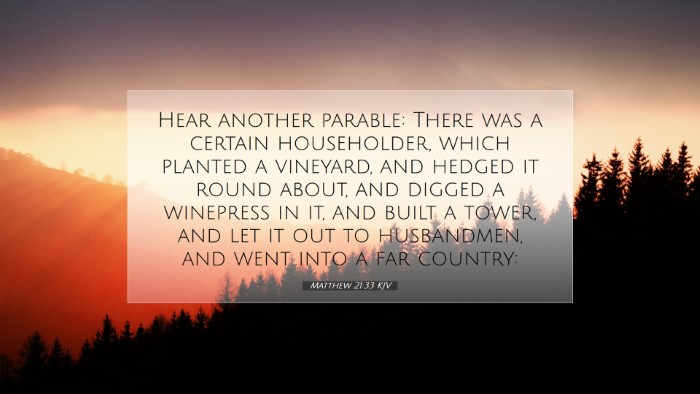Commentary on Matthew 21:33
Bible Verse: "Hear another parable: There was a certain householder, which planted a vineyard, and hedged it round about, and digged a winepress in it, and built a tower, and let it out to husbandmen, and went into a far country."
Introduction
The parable of the wicked husbandmen, found in Matthew 21:33-46, provides profound insights into God's dealings with Israel and the consequences of rejecting His messengers. It serves as a poignant reminder for all believers regarding stewardship, accountability, and the nature of God's judgment.
Contextual Overview
This parable is set within the final days of Jesus' earthly ministry, as He confronts the religious leaders of His time. The vineyard symbolizes Israel, and the householder represents God. As the owner of the vineyard, God establishes His people and expects fruitfulness, obedience, and reverence for His authority.
Analysis of Key Elements
-
The Householder:
The householder (the owner of the vineyard) represents God, who has sovereign authority over His creation. He meticulously prepares the vineyard, which reflects His diligent care for Israel. By planting the vineyard, He indicates His investment in His people.
-
The Vineyard:
The vineyard itself symbolizes Israel, chosen and set apart by God. The thorough preparation of the vineyard illustrates God's profound desire for His people to thrive and produce fruit, akin to spiritual growth and righteousness.
-
The Hedge and the Winepress:
The hedge signifies God's protection around Israel. The winepress and tower represent the means by which God provided for His people, allowing them to thrive in faith and righteousness. Both elements reflect God's comprehensive provisions for growth and sustenance.
-
The Husbandmen:
The husbandmen symbolize the religious leaders of Israel, who were entrusted with the care of God's people. However, their unfaithfulness is foreshadowed in this parable, as they are expected to yield fruit but instead plot against the son of the householder.
Theological Implications
The parable delivers a powerful theological message about accountability. God expects His people to be fruitful in the way they live out their faith. Matthew Henry emphasizes that neglect of divine responsibilities results in grave consequences:
"They abuse their privileges and misimprove their opportunities; therefore, they are justly punished." - Matthew Henry
Judgment and Rejection
As the narrative progresses, we see the rejection of the householder's servants (the prophets) and ultimately the murder of his son (representing Christ). This reflects Israel's historical pattern of rejecting God's prophets and misusing His grace:
"They not only suffered the Old Testament prophets but murdered their own Messiah, which leads to their destruction." - Albert Barnes
Application for Believers
For contemporary believers, the parable invites deep reflection on our own spiritual stewardship. Adam Clarke asserts:
"We are all stewards of God's grace and must examine whether we are producing the fruit He desires." - Adam Clarke
This calls us to evaluate our actions, our devotion to God, and our response to His call. Are we yielding the fruits of the Spirit? Are we engaged in faithful service in our communities?
Conclusion
Matthew 21:33 serves as a multifaceted reflection on God's expectations for His people, warning against complacency and spiritual negligence. The imagery of the vineyard serves not just as a historical recounting of Israel's failures but as a timeless reminder for all believers about the seriousness of our spiritual obligations. In a modern context, this parable encourages a life of accountability, faithful stewardship, and responsiveness to God's Word.
As pastors, students, theologians, and scholars navigate these profound truths, may we strive to be faithful stewards of the grace we have received. May we diligently produce the fruits of righteousness that glorify God and fulfill our calling in Christ.


